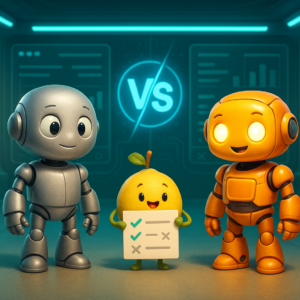In the agency world, client reporting is crucial. It’s how you demonstrate value, justify your spend, and build trust. But let’s be honest, it’s also incredibly time consuming. Manually pulling data, formatting reports, and writing summaries. It’s often the least favorite part of the job. What if you could delegate that entire process to an AI assistant?
The good news is, you absolutely can. AI assistants are revolutionizing how agencies deliver insights, moving beyond simple data aggregation to sophisticated analysis and automated reporting. AI can transform the tedious task of reporting into a strategic advantage, saving teams hours each week. This means faster, more accurate, and more insightful reports, so you can focus on strategy and client success.
The Pain of Manual Reporting
For agencies, reporting is critical but costly:
-
Time Consuming: Manually compiling data from various platforms (Google Analytics, social media, ad dashboards, CRMs) is a significant time drain.
-
Error Prone: Typos in numbers or missed data points can lead to inaccurate reports and client distrust.
-
Lack of Insight: Manual reporting often focuses on just presenting data, not on deep analysis or identifying actionable insights.
-
Inconsistent Formatting: Different clients expect different report layouts and levels of detail, leading to more customization work.
This is where an AI assistant can become your agency’s best friend.
How AI Assistants Streamline Performance Reporting
An AI assistant, trained on your agency’s processes and client data, can automate many aspects of report generation. Here’s how:
1. Automated Data Aggregation
The first hurdle is gathering data. AI agents, when connected to your marketing platforms, analytics tools, and CRMs, can pull all relevant metrics automatically.
-
LaunchLemonade Example: You can build an AI assistant with instructions like, “Access Google Analytics and our social media ad platform. Collect data on campaign spend, reach, engagement, and conversion rates for the past month.”
-
Benefit: Eliminates manual data export and consolidation, ensuring you have complete and up-to-date information.
2. Intelligent Data Analysis and Insight Generation
Raw data is useful, but insights are what drive client success. An AI assistant can go beyond mere data collection.
-
What Your AI Can Do: Analyze campaign performance, identify key trends (e.g., “Which ads had the highest ROI?”), detect anomalies, and even provide explanations for the data.
-
Benefit: Instead of spending hours crunching numbers, your AI assistant presents actionable insights, saving your analysts and account managers time to focus on strategy.
3. Customized Report Drafting
Your agency likely has specific reporting templates and formats for different clients. An AI can maintain this consistency and personalization.
-
What Your AI Can Do: Draft reports based on templates you provide, using client-specific data and brand voice. It can generate executive summaries, highlight key findings, and format the report according to your standards.
-
Benefit: Ensures consistent, professional reports for all clients without manual formatting or repetitive writing, dramatically speeding up delivery.
4. Automated Delivery and Notifications
The reporting process doesn’t end with generation. An AI can also handle the distribution.
-
What Your AI Can Do: Once a report is drafted and approved, an AI assistant can automatically send it to the client via email or post it in a shared Slack channel. It can also schedule future reports.
-
Benefit: Ensures timely delivery of reports and timely follow-up, keeping clients informed and your agency accountable without manual effort.
Building Your Agency’s Reporting Assistant with LaunchLemonade
You don’t need to be a code-slinging wizard to give your agency this power. LaunchLemonade’s no-code platform makes it simple:
-
Define the Agent’s Role: Create an AI agent with clear instructions for reporting and analysis.
-
Build Its Knowledge Base: Upload your reporting templates, key performance metrics, and any access credentials for the tools it will need data from.
-
Connect to Your Data Sources: Use integrations to link your agent to Google Analytics, your CRM, social media platforms, and ad dashboards.
-
Craft the Output Instruction: Tell the AI exactly what data to pull, how to analyze it, and what format the report should be in.
-
Test and Iterate: Run your agent with sample data, refine its instructions, and test its output repeatedly.
Pro Tips for AI-Powered Agency Reporting
-
Start with Your Most Repetitive Report: Identify the client report you create most often, and build your first AI assistant to automate that.
-
Focus on Actionable Insights: Don’t just present data, prompt your AI to highlight key metrics and trends that drive client action.
-
Maintain Human Oversight: Always review AI-generated reports. The AI provides the insights and drafts, but human expertise is critical for nuanced interpretation and client communication.
By integrating AI assistants into your reporting processes, you transform a time-consuming necessity into a strategic advantage. Your agency gains efficiency, delivers greater value, and stays ahead in a data-driven industry.
Ready to revolutionize your agency’s reporting?
Try LaunchLemonade now and build your AI-powered reporting assistant.





